Population genomics in practice
Course leaders
Per Unneberg and André Soares
Description
The aim of this workshop is to provide an introduction to commonly used methods in population genomics. As the focus of the course is on hands-on work, the topics have been designed to cover the fundamental analyses that are common in many population genomics studies. The course consists of lectures and exercises, with a focus on the practical aspects of analyses. Whereas lectures introduce some background theory, their primary aim is to set the stage for accompanying exercises.
Topics covered
- Foundations of population genetics
- Introduction to simulation and the coalescent
- Basics of variant calling
- Variant filtering and sequence masks
- Characterization and interpretation of DNA sequence variation
- Calculation and interpretation of summary statistics from variation data
- Investigating population structure with admixture modelling and principal component analyses
- Demographic modelling using sequentially Markovian coalescent models and linkage disequilibrium
- Selection scans
Learning outcomes
Upon completion of this course, you will be able to:
- describe the different forces of evolution and how they influence genetic variation
- understand and interpret genealogical trees and how they relate to genetic variation data
- describe the basics of the coalescent
- perform simple coalescent simulations with msprime
- run simple SLiM forward simulation models
- describe and run the steps of a variant calling pipeline, including quality control of raw reads, read mapping, and variant calling
- know how and when to filter raw variant calls using manual coverage filters
- describe and calculate nucleotide diversity from variation data
- analyse population structure with admixture modelling and dimensionality reduction methods
- perform demographic modelling with sequential Markovian coalescent models
- describe methods that identify regions undergoing adaptation and selection
- run selection scans, score identified regions and interpret findings in the context of genome annotations
Pre-requisites
The following is a list of skills required for being able to follow the course and complete the exercises:
-Basic knowledge in R or Python
- Basic knowledge of variant calling, or the equivalent of NBIS course “Introduction to Bioinformatics using NGS data”
- Basic knowledge of population genetics
- Basic understanding of frequentist statistics
- A computer
Desirable, but not essential, skills increasing the output of the course, include:
- Experience with analysis of NGS and other omic data
Level
intermediate
Upcoming courses
| Course | Date | Location | Apply by |
|---|---|---|---|
| No courses available | |||










